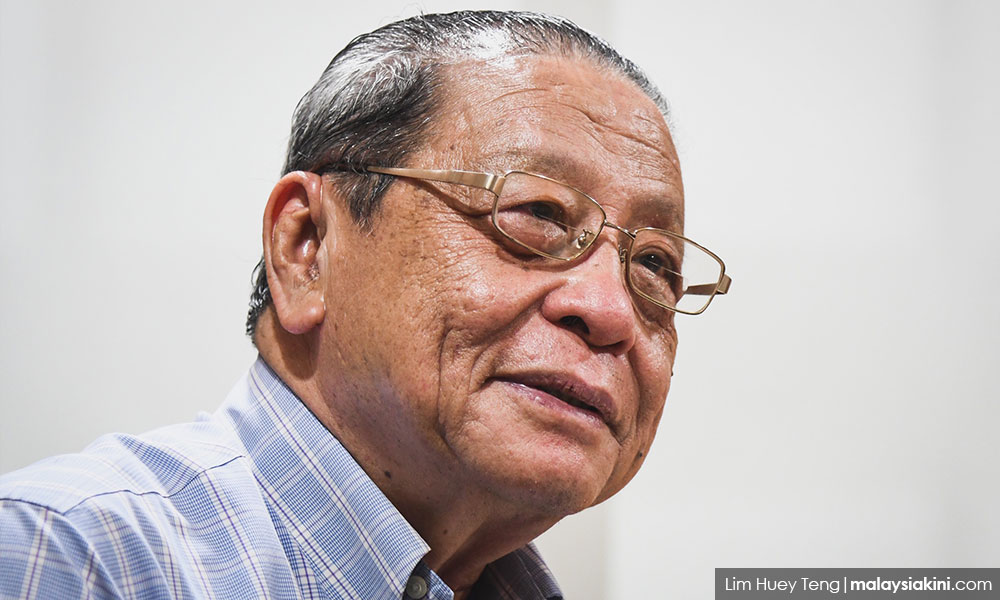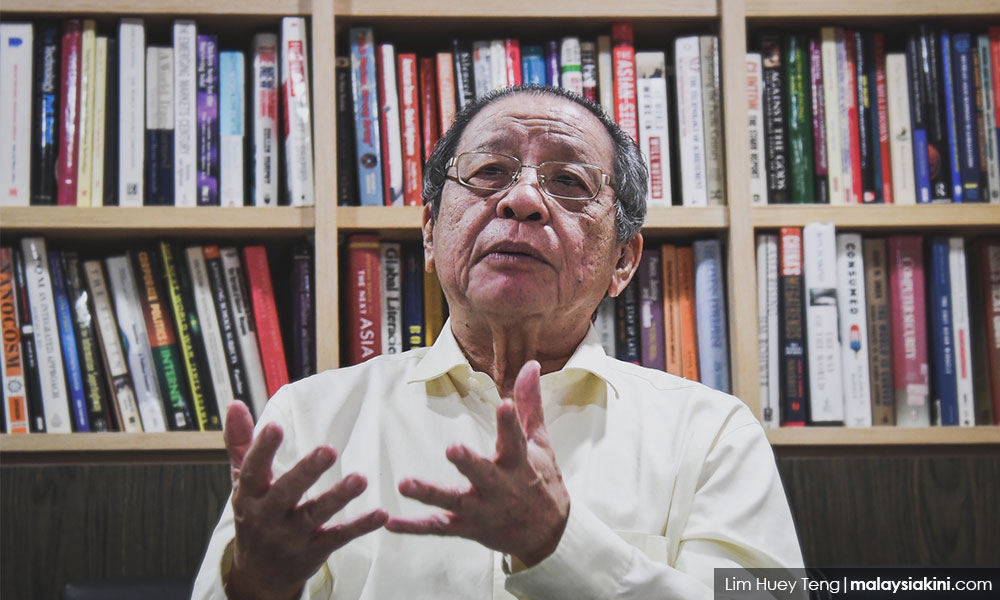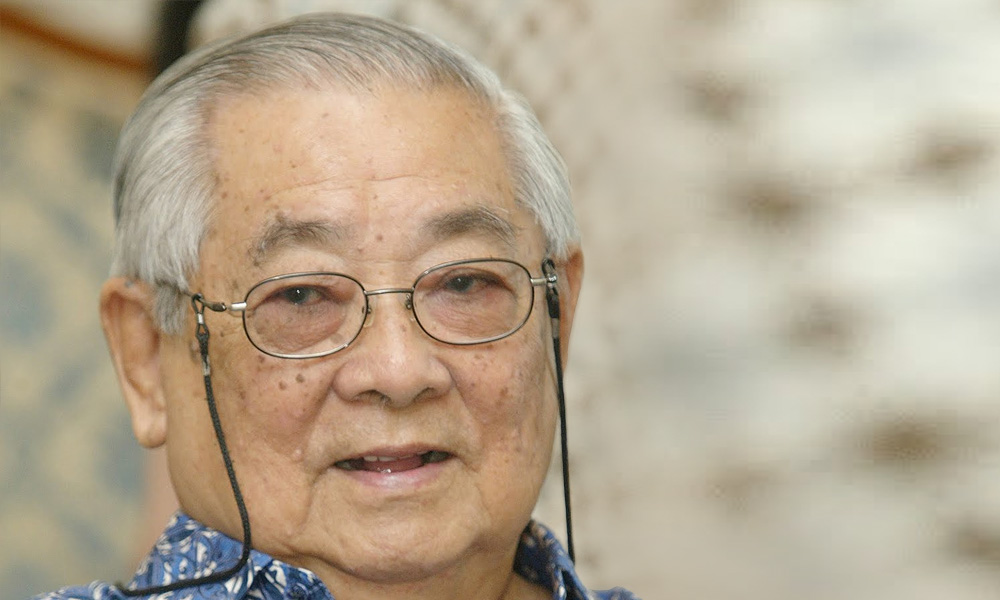
My first sight of DAP adviser and MP for Iskandar Puteri, Lim Kit Siang, occurred in November 1968.
The occasion was the Great Malaysian Cultural Debate held at the Mara Auditorium in what was then Batu Road (later renamed Jalan Tuanku Abdul Rahman).
It was a Sunday morning during the Muslim fasting month of Ramadan.
A crowd of about 500 people had assembled in the auditorium by 9am, starting time for the debate moderated by People's Progressive Party president and MP for Menglembu DR Seenivasagam.
Something Kit Siang had said led to a challenge to debate from Dr Syed Naguib Alatas, younger brother of Dr Syed Hussein Alatas, the founding president of the just-formed Gerakan Rakyat Malaysia.
What exactly Kit Siang said that brought a riposte from Syed Naguib, which eventuated in the debate, is lost in the mists of time.
In any case, words are so chameleon-like, especially on matters cultural, and they are apt to take on different meanings in the course of a protracted exchange.
If memory serves, the nub of the issue was Kit Siang's and DAP's assertion that the national culture should arise from a choice made by a Malaysian Malaysia.

Syed Naguib demurred by espousing the view that the national culture should reflect Malay primacy, at no cost to sentiments and practices sacrosanct to non-Malays.
Suffice it to say exchanges before the debate between the chief spokespersons for the DAP, who were Kit Siang and Goh Hock Guan, and Gerakan, with Syed Naguib as its leading light on this issue, were stirring enough to move some 500 people to want to witness the real thing in itself.
Not least of the anticipated pleasures was the choice of the sharp and witty Seenivasagam for the role of moderator. He lived up to expectations.
Kit Siang didn't quite live up to the expectations of him as the torchbearer of the DAP, founded in Seremban two years earlier to the debate.
Kit Siang was no pushover
He was a little too raw and unschooled in the arts of debate, but he was no pushover.
Attendees were eager to take his measure, the 27-year-old ex-journalist having been touted as ready to step into the shoes of his political mentor, Devan Nair, who opted to go back to Singapore where meatier nation-building roles awaited him with the ruling PAP.
With Devan's departure, party secretary-general Kit Siang needed to step up to the plate, with a generous assist that day of the Great Malaysian Cultural Debate from Hock Guan, an architect already making a name for himself in his profession and in politics.
On the Gerakan side, Syed Naguib did all the heavy lifting.
For the purposes of the debate, he was the party's chief spokesperson, though he was not anywhere near the top of its totem pole.
Parti Gerakan, founded a few months prior to the debate, represented a coming together of political figures and forces that had, for some time since Merdeka in 1957, gestated in the Malaysian political wilderness.

The formation of Gerakan in 1968 saw a banding together of left wingers like MP for Batu Dr Tan Chee Koon, democratic centrists like Dr Lim Chong Eu (photo), trade unionists like V David, professionals like Dr JBA Peter and V Veerappan, and academicians like the Alatas brothers and Prof Wang Gang-wu.
It was a congeries, rather like Parti Keadilan Nasional (PKN, later renamed Parti Keadilan Rakyat), which was formed in April 1999 from a confluence of social and religious activists, ex-Umno dissidents and left-wingers no longer in thrall to socialist ideology.
But whereas the formation of PKN was catalysed by the travails of Anwar Ibrahim from the time of his sacking as deputy prime minister and deputy Umno president and his detention under the ISA in September 1998, Parti Gerakan had no such crystallising start.
But its formation was welcomed with every bit of popular enthusiasm that PKN had generated in 1999.
This was because in 1968 the Umno-dominated Alliance appeared increasingly, like the Umno of 1998, out of step with the people and the times; the opposition Labour Party, weakened by ISA-incarceration of its leadership, was a shell of its old self; and the Malay left wing marshalled by PSRM's Kassim Ahmad was unable to challenge Umno and PAS for a share of the Malay rural vote.
Saddled by Chinese chauvinism perception
Also in 1968, the DAP was a two-year-old party saddled by the perception of it being a vehicle for Chinese chauvinism.
In other words, there was a vacuum in the public space for the articulation and representation of a corpus of views that have come to be regarded as social democratic and Malaysian-grown.
In retrospect, the Great Malaysian Cultural debate in November 1968 was an admirable attempt to fill that vacuum.
At the end of a five-hour exchange between the leading exponents of Gerakan and the DAP, if a summary of what was propounded could be made, it was that the speakers were launched on a trajectory towards being social democrats in economic matters, defenders of democratic principles in politics, adversaries of conservative complacency in the face of human suffering, and non-apologists for repressive or totalitarian practice.
Among the speakers that day, only Kit Siang has endured to this day as the perdurable standard bearer of the above manifesto.
This has given him the lofty stature he now enjoys in national politics; no one can take a cubit away from him.
It all comes down to his power of outlasting adversaries and adversarial circumstance, through consistent espousal of democratic values and, more importantly, a willingness to endure personal privations when those values are repressed.
Kit Siang has become, on the commemoration of his 78th birthday yesterday, something his detractors - and they are legion - would be loath to accept: an authentic Malaysian hero.
TERENCE NETTO has been a journalist for more than four decades. A sobering discovery has been that those who protest the loudest tend to replicate the faults they revile in others. - Mkini


No comments:
Post a Comment
Note: Only a member of this blog may post a comment.